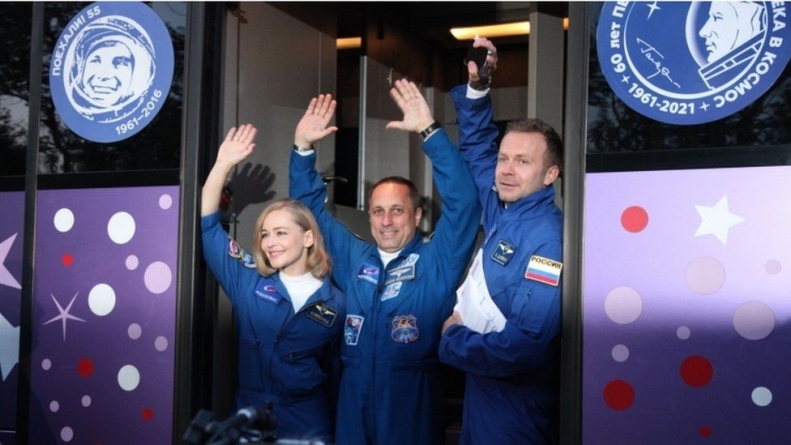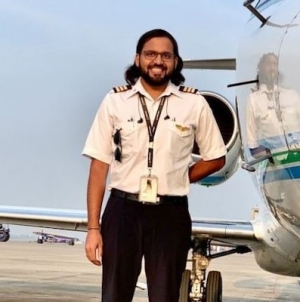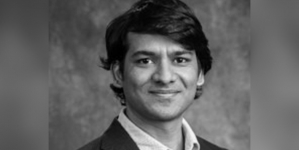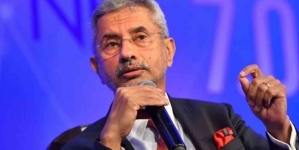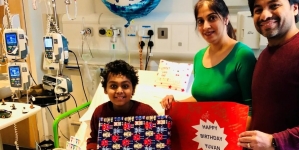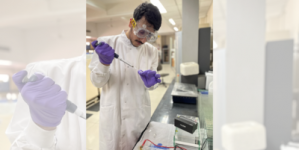-
IRELAND: “From 800 to 7,000”: Ireland’s Education Appeal Soars Among Indian Students - 1 day ago
-
TORONTO: Canada Sets Weekly Work Hour Limit For Indian Students At 24 - May 3, 2024
-
TORONTO: India strongly protests ‘Khalistan’ slogans at a public event attended by Canadian leaders - May 2, 2024
-
TOKYO: Japan Offers Scholarships To Indian Students Pursuing Research - May 1, 2024
-
ZAGREB: India-Croatia Foreign Office Consultations (FOC) - May 1, 2024
-
BUCHAREST: Government Of Romania To Offer Scholarships To Indian Students - April 30, 2024
-
WASHINGTON: India Now Second-Largest Source Country For New Citizens In US- Report - April 30, 2024
-
LONDON: Run For Modi” Event In London To Drum Up Support For PM Modi - April 29, 2024
-
LONDON: Indian-Origin Candidate On How He Plans To Win London Mayoral Polls - April 28, 2024
-
HARVARD: No Country Is Perfect”: Physics Wallah Urges Indian Students At Harvard, Stanford To Return - April 27, 2024
MOSCOW: Russian film team boldly shoot towards space station
MOSCOW: Russia has taken the lead in a
space race with a difference, sending a team to the International Space Station
to shoot a feature film ahead of an American crew.
Yulia
Peresild, 37, is set to star in the film, directed by Klim Shipenko.
Their
Soyuz MS-19 spacecraft took off from Baikonur in Kazakhstan, and three hours
later docked with the International Space Station.
US actor
Tom Cruise and Nasa have also been planning to make a film there.
There was
more than a touch of show business glamour when the Soyuz crew launched on
Tuesday, as the TV cameras focused on Peresild and her 12-year-old daughter
Anna, who was watching from a safe distance.
It was
from the Kazakh steppes where camels and susliks (ground squirrels)
roam, rather than in the studios of Hollywood, that real actors went into
space, said Russia’s Komsomolskaya Pravda website. Shipenko’s actress wife
Sofia Karpunina noted that the director had had to shed 15kg (33lbs)
beforehand.
The
launch, led by cosmonaut Anton Shkaplerov, went according to plan at 11:55
Moscow time (08:55 GMT). “The crew is feeling well,” said the
commander shortly after take-off.
The Soyuz
docked with the ISS a little over three hours afterwards. However, it was a
little later than planned as the Soyuz’s automatic Kurs docking system failed
and the commander had to switch to manual control.
Shkaplerov
would normally have had the help of a flight engineer but his two colleagues
would have been unable to help him, despite their fast-track flight training.
Eventually
the hatch connecting the Soyuz to the ISS opened and the crew joined the seven
others waiting in the Russian section of the ISS.
“The
hatch is open! Everything as planned,” tweeted Roscosmos space agency
chief Dmitry Rogozin.
Although
Shkaplerov will stay on board, director and actress have just 12 days to film
their scenes in space, with Peresild playing a cardiac surgeon sent into orbit
to save a cosmonaut. Two of the Russian cosmonauts already on board, Oleg
Novitsky and Pyotr Dubrov, will also take part in the film, reports say.
Filming
will take part in the Russian section of the ISS and the mission has proved
contentious in Russia’s space industry.
The
feature film is the brainchild of the Roscosmos chief, who at one point fired
the space agency’s head of crewed missions in a row over the project.
Sergei
Krikalev, a veteran of space missions, got his job back days later amid
widespread anger at his sacking.
Another
cosmonaut, Mikhail Kornienko, told BBC Russian he was one of many who were
opposed to it. “The ISS is no place for performers, all sorts of clowns or
tourists. It’s a huge space lab and you shouldn’t get in the way of
professional work.”
The film
is being funded by Russia’s Channel One TV, and a Roscosmos subsidiary said it
would not require money from the federal budget.
Russia’s
space agency has had a troubled few years, with corruption overshadowing the
construction of a cosmodrome in the Far East.
Its
long-delayed Nauka laboratory finally arrived at the space station during the
summer, 14 years after it was due to for launch.
Russia
has warned it could pull out of the ISS within four years, because of its
ageing hardware on board.



















